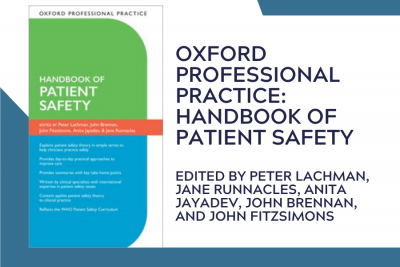When I was in my first week of training as a paediatrician in the role of paediatric registrar, a young doctor, a house officer, was in the assessment area for children with gastroenteritis. He assessed a baby who was 10% dehydrated and acidotic. He asked a nurse for 5mls of Sodium Chloride (NCl). The nurse drew up the NCl and handed to the doctor who injected the medication into the intravenous line. The baby had a cardiac arrest and died a few hours later. I had to break the news to the baby’s parents that we had inadvertently caused the death of their infant.
Both the doctor and nurse were charged with manslaughter and lost their future, as had the baby and her parents. However, the cause of the problem was not negligence per se. For sure the doctor could have checked more carefully before injecting the baby. The nurse could have checked the vial before handing to the doctor. But this was a problem that has occurred countless times the world over. It was a human factors error in that the nurse had drawn up Potassium Chloride KCl by mistake, as the two glass vials were kept side by side, one with red writing (KCl) and one with black writing (NCl). An accident waiting to happen and one that continues to happen in many different ways both with these medications as well as with many others.
I did not know that this patient safety catastrophe was the start of my lifelong journey in patient safety which is now culminating in the publication of the OUP Handbook of Patient Safety. Since that life-changing event, the science of patient safety has developed and there have been major advances in the field. Over 20 years ago, seminal reports were published such as To Err is Human and An Organisation with a Memory. These reports identified the challenge of patient safety and the need for a systems approach. They stimulated research and many implementation programmes.
We now know why it is important to be safe and the need to have a culture of safety. We know how complex healthcare is and how difficult it can be to deliver safe care. And we know that the Hippocratic Oath Primum non-nocere - First do no Harm - needs more than the Oath itself. We need to know how to keep people safe. Leadership for safety is essential to engender psychological safety and protect the healthcare workforce while protecting patients from harm. And we know that we must recognise context as a major factor in developing safe systems.
The OUP Handbook of Patient Safety aims to provide frontline healthcare workers and leaders with the theory and methods to be safe. The book has been written by experts in the field and by frontline healthcare workers who understand the challenges that are faced on a daily basis and which became more acute during the COVID pandemic. The book provides the theoretical background drawing on the latest theories on patient safety – from managing risk proactively and learning from incidents, to the concepts of building resilience and learning from success as well as the theories underlying human factors, reliability, resilience and Safety 2. I believe that one needs to use all the different approaches in order to deliver safe care.
We have come a long way since my introduction to patient safety 38 years ago. Yet many healthcare leaders, members of the workforce and those in positions of governance still do not know how to be safe. We must provide them with the knowledge and skills to be safe so that they can design health systems that can deliver high quality, person-centred and safe care, not only manage the disease.
I believe that the practical approach in the book will help leaders, clinicians and all healthcare workers to move from “what is needed to be done” to “knowing how to be safe. This may well help deliver the ambitions of the WHO Global Action Plan on Patient Safety and make a real difference in the coming years.
Peter Lachman
Lead Faculty Quality Improvement Programme
Royal College of Physicians of Ireland
Lead Editor of OUP Handbook of Patient Safety
- ISQua members, ISQua Fellow, ISQua Experts and ISQua Academy can save 30% off the book, using this code AMPROMD9, when purchasing from the OUP website: https://bit.ly/392rRg7
